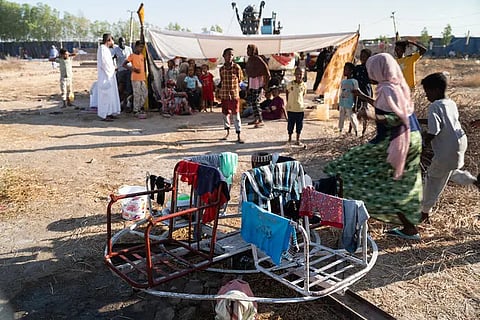

UN Women says women and girls in El Fasher have endured more than 500 days under siege.
Civilians face famine-level hunger, indiscriminate bombardment and sexual violence.
Families survive on animal feed and tree leaves as food supplies run out.
Health and education facilities have been destroyed; pregnant women lack basic care.
UN calls for immediate ceasefire and safe humanitarian access in line with Security Council Resolution 2736 (2024).
Women and girls trapped in the besieged Sudanese city of El Fasher are facing what UN Women has described as “death by missiles, starvation, daily violations, and rape” after more than 500 days without sustained humanitarian access.
In a statement released this week, the United Nations agency warned that famine-level conditions, indiscriminate bombardment and sexual violence are pushing civilians in North Darfur into “bitter and painful suffering”. For the past three weeks alone, the United Nations has recorded at least 125 civilian deaths in El Fasher, including reports of summary executions, though the real toll is feared to be far higher.
Since fighting erupted in April 2023, more than 600,000 people have been displaced from El Fasher and surrounding camps. Inside the city, families are now surviving on animal feed and tree leaves after food stocks ran out and aid convoys were repeatedly blocked or attacked.
I am speaking about the bitter and painful suffering of women and girls trapped in the city of El Fasher. We are facing death by missiles, starvation, daily violations, and rape.
Zahara, a mother still trapped in the city, told UN Women Sudan
Healthcare and education have collapsed under the siege. More than 41 facilities have been destroyed, while medicine supplies are exhausted, the agency stated. Pregnant women are giving birth without skilled attendants or access to emergency care, and survivors of rape have no access to medical treatment.
UN Women said that conflict-related sexual violence, including rape and gang rape, has been systematically deployed as a weapon of war, alongside the deliberate use of starvation against civilians — both violations of international humanitarian law.
The agency stressed that women-led groups and local volunteers remain “the backbone of community survival”, but their resources are depleted and they urgently need sustained international support.
North Darfur hosts about 1.79 million internally displaced people — 8 per cent of Sudan’s total — more than half of them women and girls. Deadly raids have continued into camps such as Abu Shouk, where famine conditions were declared in December 2024.
UN Women reiterated its condemnation of all violations and echoed the UN secretary-general’s call for an immediate ceasefire in and around El Fasher. It urged compliance with Security Council Resolution 2736 (2024), which demands an end to the siege, protection of civilians and safe, unhindered humanitarian access.
“The suffering of Zahara is the suffering of every woman and girl in El Fasher today,” the statement concluded. “Their courage must be met with decisive global action. The world cannot remain silent … The time to act is now.”